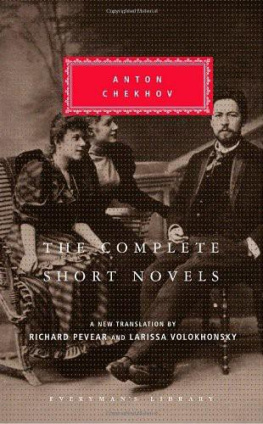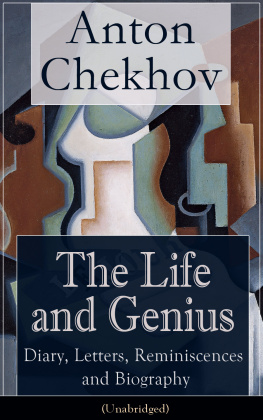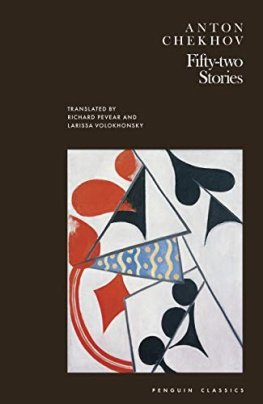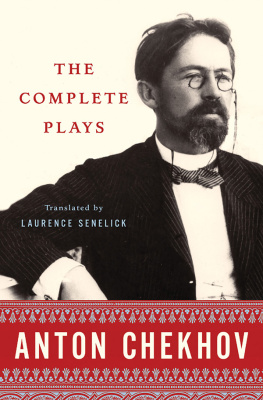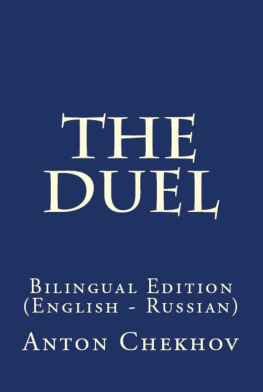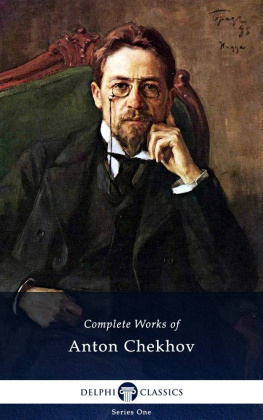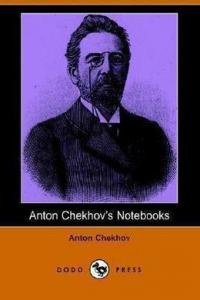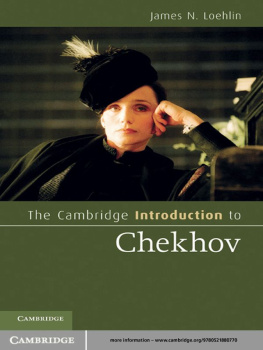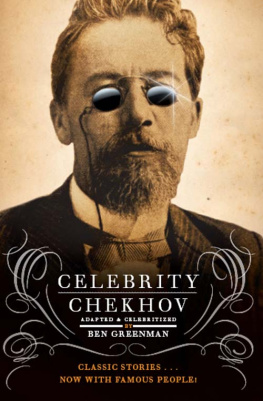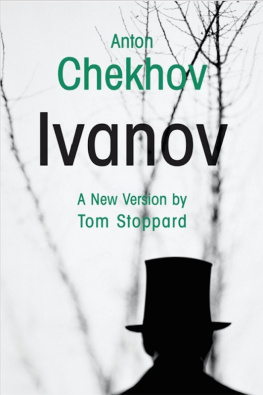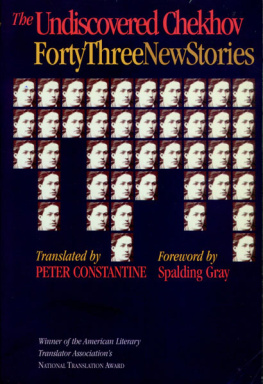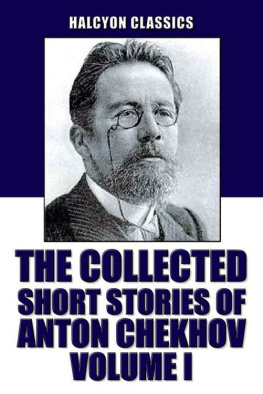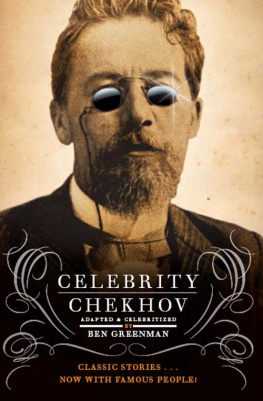Anton Chekhov - Stories of Anton Chekhov
Here you can read online Anton Chekhov - Stories of Anton Chekhov full text of the book (entire story) in english for free. Download pdf and epub, get meaning, cover and reviews about this ebook. year: 2000, publisher: Bantam, genre: Detective and thriller. Description of the work, (preface) as well as reviews are available. Best literature library LitArk.com created for fans of good reading and offers a wide selection of genres:
Romance novel
Science fiction
Adventure
Detective
Science
History
Home and family
Prose
Art
Politics
Computer
Non-fiction
Religion
Business
Children
Humor
Choose a favorite category and find really read worthwhile books. Enjoy immersion in the world of imagination, feel the emotions of the characters or learn something new for yourself, make an fascinating discovery.

- Book:Stories of Anton Chekhov
- Author:
- Publisher:Bantam
- Genre:
- Year:2000
- Rating:4 / 5
- Favourites:Add to favourites
- Your mark:
- 80
- 1
- 2
- 3
- 4
- 5
Stories of Anton Chekhov: summary, description and annotation
We offer to read an annotation, description, summary or preface (depends on what the author of the book "Stories of Anton Chekhov" wrote himself). If you haven't found the necessary information about the book — write in the comments, we will try to find it.
Stories of Anton Chekhov — read online for free the complete book (whole text) full work
Below is the text of the book, divided by pages. System saving the place of the last page read, allows you to conveniently read the book "Stories of Anton Chekhov" online for free, without having to search again every time where you left off. Put a bookmark, and you can go to the page where you finished reading at any time.
Font size:
Interval:
Bookmark:
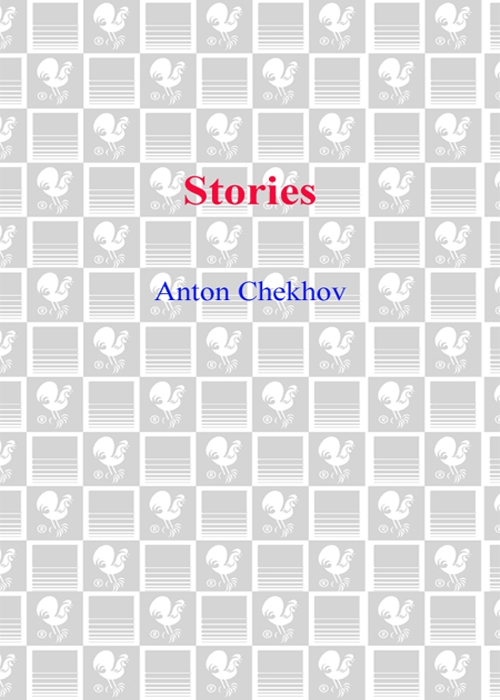
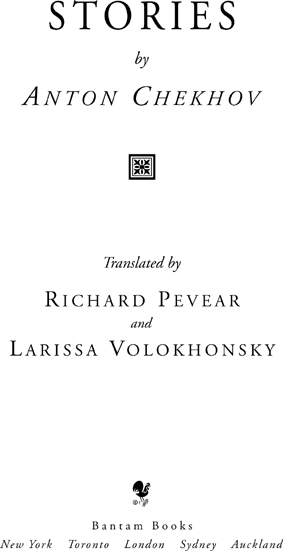
In the autumn of 1844 a young writer named Dmitri Grigorovich was sharing rooms with a friend of his from military engineering school, the twenty-three-year-old Fyodor Dostoevsky, who was at work on his first novel, Poor Folk. Through Grigorovich the finished manuscript reached the hands of Vissarion Belinsky, the most influential critic of the time, whose enthusiasm launched Dostoevskys career. More than four decades later, in 1886, this same Grigorovich, now an elder statesman of literature, came across the humorous sketches of someone who signed himself Antosha Chekhonte, brought them to the attention of the publisher Alexei Suvorin, and thus recognized the last great Russian writer of the nineteenth centuryAnton Chekhov.
Grigorovich also wrote to the young man himself, scolding him for not taking his work seriously and for hiding behind a pseudonym. Chekhov was astonished and deeply moved. In his reply, dated March 28, 1886, after apologizing for scanting his talent, though he suspected he had it, and thanking Grigorovich for confirming that suspicion, he explained:
In the five years I spent hanging around newspaper offices, I became resigned to the general view of my literary insignificance, soon took to looking down on my work, and kept plowing right on. Thats the first factor. The second is that I am a doctor and up to my ears in medicine. The saying about chasing two hares at once has never robbed anybody of more sleep than it has me.
Just a month earlier, Chekhov had written to a friend saying that his real commitment was to medicine, while literature was a mistress he would one day abandon. Now he likened the effect of Grigorovichs letter on him to a governors order to leave town within twenty-four hours. And he obeyed the order. He began to write less and work more. The first story signed with his real name, Panikhida, appeared in Suvorins magazine New Time that same yearthe start of a close and sometimes difficult collaboration between writer and editor that would continue for the rest of Chekhovs life. Though a delight in the absurd and a sharp eye for human folly remained central to his work, he was no longer merely a humorist. The repentant sketch-writer had made his entry into serious literature.
Chekhovs contemporaries were struck by his originality. He invented a new kind of story, which opened up areas of life that had not yet been explored by Russian literature. Tolstoy saw it at once. Chekhov is an incomparable artist, he is quoted as saying, an artist of life Chekhov has created new forms of writing, completely new, in my opinion, to the whole world, the like of which I have not encountered anywhere Chekhov has his own special form, like the impressionists. Tolstoy was not alone in using the term impressionism to describe Chekhovs art. We may see what he meant if we look at The Huntsman, the story that first caught Grigorovichs eye. Written entirely in the present tense, it opens with some fragmentary observations about the weather, a brief but vivid and (typically for Chekhov) slightly anthropomorphized description of the fields and forest, a few spots of colorthe red shirt and white cap of the huntsman. A woman appears out of nowhere. She and the huntsman talk, she tenderly and reproachfully, he boastfully and casually. Ashamed of her joy, she covers her mouth with her hand. He scratches his arm, stretches, follows some wild ducks with his eyes. It is clear from what he says that they cannot live together. He gets up and leaves; she watches him go: Her gaze moves over the tall, skinny figure of her husband and caresses and fondles it He turns, hands her a worn rouble, and goes on. She whispers, Good-bye, Yegor Vlasych! and stands on tiptoe so as at least to see the white cap one more time. That is all. The story does not build to any moment of truth; it does not reach any significant conclusion. It simply stops.
The Cherry Orchard.
Another aspect of Chekhovs originality is the inclusiveness of his world. He describes life in the capitals and the provinces, city life, village life, life in the new industrialized zones around the cities, life in European Russia, Siberia, the Crimea, the Far East, the life of noblemen, officials, clergy high and low, landowners, doctors, intellectuals, artists, actors, merchants, tradesmen, peasants, prisoners, exiles, pampered ladies, farm women, children, young men, old men, the sane, and the mad. One of the basic principles of Chekhovs artistic work, Boris Eikhenbaum notes, is the endeavor to embrace all of Russian life in its various manifestations, and not to describe selected spheres, as was customary before him. The Chekhovian grasp of Russian life is staggering; in this respect, as in many others, he cannot be compared with anyone His characters are not monumental personalities dramatically portrayed, like the heroes of Dostoevsky or Tolstoy, they are sharply observed typesthe darling, the explainer, the fidget, the student, the malefactor, the man in a case, the heiress, the bishop, the fiance. They are made of the common stuff of humanity, as Mirsky has said, and in this sense, Chekhov is the most democratic of writers. There is something in them reminiscent of Chaucers Canterbury pilgrimsthe knight, the miller, the prioress, the parson, the manciple, the pardoner, the wife of Bath but Chekhovs world is more scattered, and his people are transients of a more accidental sort: summer guests, doctors on call, hunters in the field, riders on ferries, passersby, city people displaced to the country, country people out of place in the city. Their pilgrimage has no definite goal.
Chekhovs early work was a popular success, and remains popular to this day among ordinary Russian readers, who do not share the common Western image of Chekhov as the pessimistic poet of crepuscular moods, the last singer of disintegrating trifles. His first collection, Tales of Melpomene, was published in 1884, the year he finished his medical studies; the second, Motley Stories, was published in 1886, and did so well that he gave up the idea of practicing medicine full-time and, with Grigorovichs blessing, devoted himself to writing. A year later came the collection In the Twilight, which was awarded the prestigious Pushkin Prize in 1888. Among the sketches and anecdotes of these early collections are some masterpieces of artistic concentration and force: not only The Huntsman but The Malefactor, Anyuta, Easter Night, Vanka, Sleepy. Chekhov began writing plays at the same time, and with equal success. His first play, Ivanov, opened in Moscow on November 19, 1887. In January 1889 it was staged in Petersburg, where it was greeted with enthusiasm and much discussed in the newspapers and literary journals. The production later toured the provinces.
But, precisely because of its originality, Chekhovs work met with opposition from the established critics of the time. For decades literary criticism had been dominated by political ideologists, who judged literary works according to their social message, their usefulness to the common cause. The writer was seen first of all as a pointer of the way, a leader in the struggle for social justice; his works were expected to be true to life and to carry a clear moral value. Faced with stories like Anyuta or Easter Night, what were these critics to say? What were they to think of a writer whose first precept was the absence of lengthy verbiage of a political-social-economic nature? Chekhovs impressionism was seen as a form of art for arts sake, a denial of the writers social role, and a threat to the doctrine of realism, and he was attacked for deviating from the canons of useful art.
Font size:
Interval:
Bookmark:
Similar books «Stories of Anton Chekhov»
Look at similar books to Stories of Anton Chekhov. We have selected literature similar in name and meaning in the hope of providing readers with more options to find new, interesting, not yet read works.
Discussion, reviews of the book Stories of Anton Chekhov and just readers' own opinions. Leave your comments, write what you think about the work, its meaning or the main characters. Specify what exactly you liked and what you didn't like, and why you think so.

